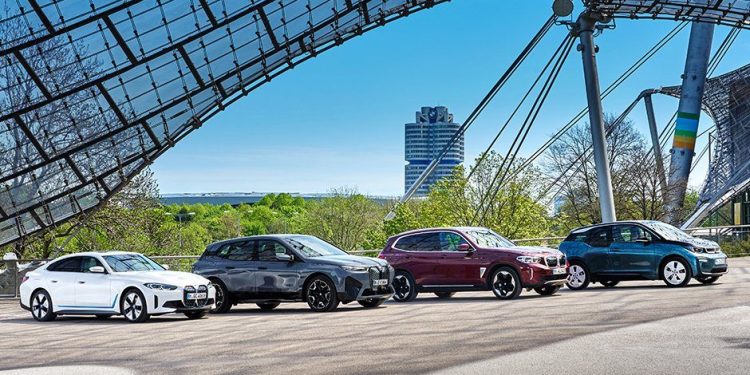BMW wants to be NZ’s leading electric brand
It’s been a significant month for BMW, both in New Zealand and abroad. The brand revealed the iVision Circular, arguably one of the most talked about concepts at the Munich Motor Show, while making a plethora of pledges about sustainability practices.
Now, the German firm is celebrating World EV Day by flexing its muscles and exclaiming that it aims to be New Zealand’s leading supplier of plug-in vehicles.

In a statement, BMW New Zealand boasts that with the arrival of three new EVs by the first quarter of 2022, it will have 10 electrified models available locally; more than anyone else and placing it “at the top of the list for model availability not only among the premium segment, but of all manufacturers represented in NZ.”
Toyota is the current owner of the crown of ‘most electrified models’, with nine hybrids featured across its current line-up (not including its Lexus offerings), although none of these is a pure EV. The expected arrival of the bZ4x next year will push it to 10 electrified models. Mercedes-Benz is up there, too, currently offering four plug-in hybrids and two dedicated EVs.
BMW New Zealand’s highly anticipated triple of EV arrivals are the i4, iX3, and iX.

The iX3 and iX represent different things despite both being SUVs. The iX3 is tipped to be more of a volume seller, set to attract buyers from BMW’s X3 audience. The iX, meanwhile, is designed as a tech showcase for the marque, featuring plenty of innovations that will eventually trickle down to other models.
The i4, meanwhile, is a sports sedan with premium chops. It occupies a similar space to the BMW 3 Series, although it’s slightly longer and taller (and much wider). Pricing for the i4 was revealed just yesterday, kicking off at $109,900.
BMW New Zealand reports that sales of electrified models have been surging lately (pun not intended). Sales of plug-in hybrid models were up by 114 per cent to the end of July, and 68 Mini Electric hatches have sold in 2021 so far.

By 2023, BMW Group is set to offer 25 electrified models, with over half being pure electric. By 2030, the marque expects to have sold ten million pure EVs, its use-phase emissions are expected to be down by 50 per cent, the amount of recycled materials in each car is expected to grow from 30 per cent to 50 per cent, and Mini will have become an exclusively EV-based brand.
The one ‘missing’ piece of the commitment puzzle is the lack of a pledge for BMW to ditch internal combustion engines entirely. While key premium European rivals Mercedes-Benz, Audi, Jaguar and Bentley have all announced plans to phase out ICE, BMW has been resilient so far.
To the relief of petrol heads, one suspects.





